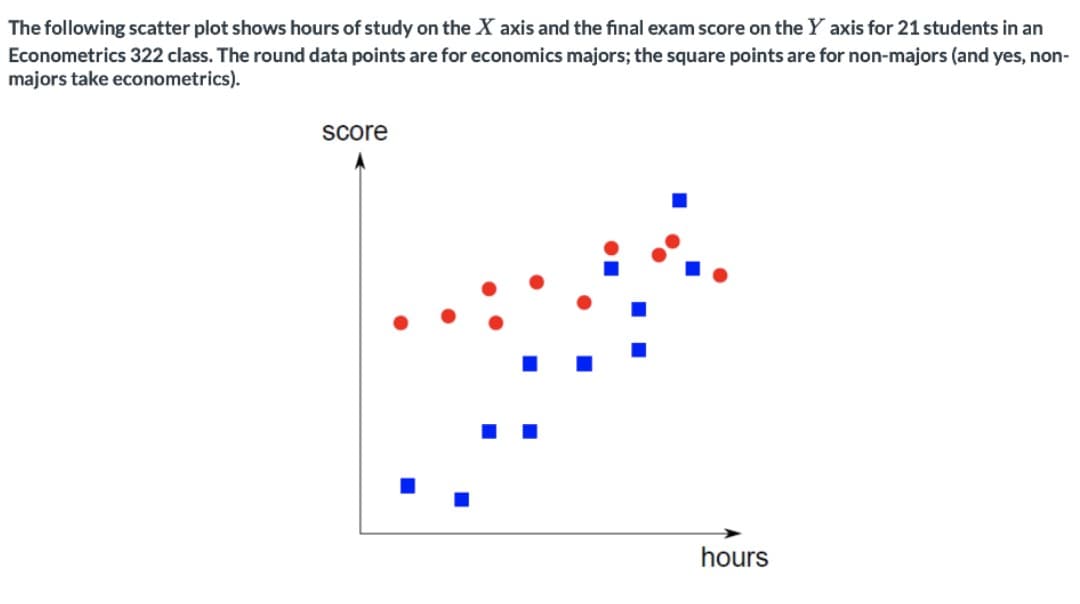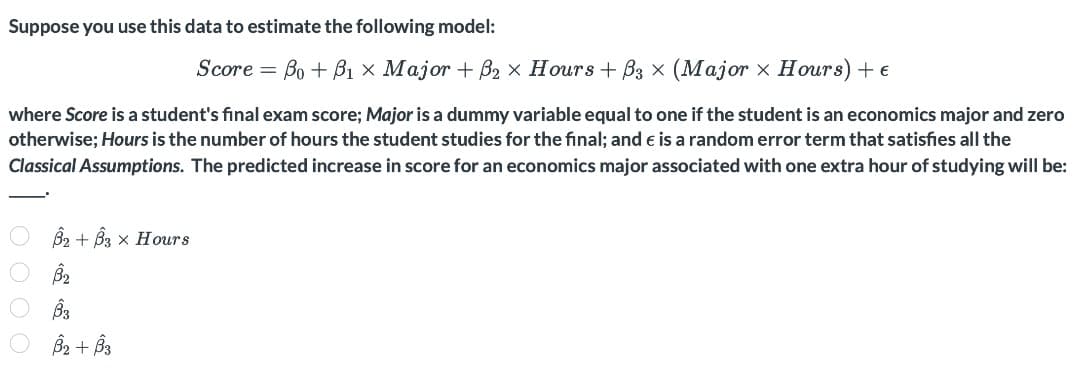Suppose you use this data to estimate the following model: Score = Bo + B1 × Major + B2 × Hours + B3 × (Major x Hours) + e where Score is a student's final exam score; Major is a dummy variable equal to one if the student is an economics major and zero otherwise; Hours is the number of hours the student studies for the final; and e is a random error term that satisfies all the Classical Assumptions. The predicted increase in score for an economics major associated with one extra hour of studying will be: 62 + B3 x Hours
Suppose you use this data to estimate the following model: Score = Bo + B1 × Major + B2 × Hours + B3 × (Major x Hours) + e where Score is a student's final exam score; Major is a dummy variable equal to one if the student is an economics major and zero otherwise; Hours is the number of hours the student studies for the final; and e is a random error term that satisfies all the Classical Assumptions. The predicted increase in score for an economics major associated with one extra hour of studying will be: 62 + B3 x Hours
Micro Economics For Today
10th Edition
ISBN:9781337613064
Author:Tucker, Irvin B.
Publisher:Tucker, Irvin B.
Chapter1: Introducing The Economic Way Of Thinking
Section1.A: Applying Graphs To Economics
Problem 7SQ
Related questions
Question

Transcribed Image Text:The following scatter plot shows hours of study on the X axis and the final exam score on the Y axis for 21 students in an
Econometrics 322 class. The round data points are for economics majors; the square points are for non-majors (and yes, non-
majors take econometrics).
Score
hours

Transcribed Image Text:Suppose you use this data to estimate the following model:
Score = Bo + B1 × Major + B2 × Hours + B3 × (Major x Hours) + e
where Score is a student's final exam score; Major is a dummy variable equal to one if the student is an economics major and zero
otherwise; Hours is the number of hours the student studies for the final; and e is a random error term that satisfies all the
Classical Assumptions. The predicted increase in score for an economics major associated with one extra hour of studying will be:
B2 + B3 x Hours
B2 + Bs
Expert Solution
This question has been solved!
Explore an expertly crafted, step-by-step solution for a thorough understanding of key concepts.
Step by step
Solved in 2 steps with 1 images

Knowledge Booster
Learn more about
Need a deep-dive on the concept behind this application? Look no further. Learn more about this topic, economics and related others by exploring similar questions and additional content below.Recommended textbooks for you






